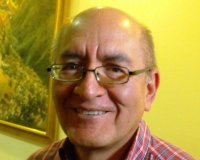Communication should be a human right, journalists told
by - 22nd April 2014
 SOUTH AMERICAN media advocate, Pedro Sanchez is calling for communication through the media to be recognised as a human right.
SOUTH AMERICAN media advocate, Pedro Sanchez is calling for communication through the media to be recognised as a human right.
Sanchez addressed a group of journalists and Christian media commentators in Quito, Ecuador, on the 34th anniversary of the shooting of Oscar Romero, the Catholic Bishop from El Salvador who became a popular broadcaster during its long-running civil war.
Bishop Romero had a vast following for his radio sermons but his frequent call for an end to political violence brought him into conflict with both the Catholic Church and the government. He was assassinated the day after calling on Salvadoran soldiers, as Christians, to stop killing civilians on behalf of the government.
Sanchez challenged his audience to be inspired by the work of Bishop Romero – to promote communication as a human right and to call upon today’s Christians in the media to bring about a change in newsroom values.
‘Where is the Christian spirit in the newsroom?’ asks Sanchez. ‘Where are compassion, mercy, brotherhood and justice – guided by values from the Holy Spirit – from people like Bishop Romero? Are only people from high-society portrayed in media culture now, with no room for the poor? Why don’t we as Christians take the initiative to promote change?
‘We need to start promoting communication as a human right, requiring a different form of citizen control, reader involvement and governance.’
Paradigm shift
Pedro Sanchez is part of the ALER movement, which campaigns across Latin America for a paradigm shift in modern media and has long been a voice promoting communication in mainstream, social and citizen media as a human right.
Like Bishop Romero, his early involvement with the media was in the context of liberation theology. In the climate of military coups and dictatorships in 1970s South America many churches became allies of the government. ‘It was, in effect, a religion condemning you to passivity, with a promise of reward in heaven,’ says Sanchez.
Out of this situation came the birth of liberation theology, which was a response to the poverty and ill treatment of ordinary people. Bishop Romero was one of the high-profile clerics associated with the movement.
Originally from Peru, Pedro Sanchez worked for Dominican Catholic radio in Lima, the country’s capital, in the 1970s where he produced a programme that challenged people to think differently about how the media is used.
‘Together with various local and union leaders we wanted to serve poor neighborhoods, raising issues of education, health, sanitation, water, local public transportation and so on. Lots of people came to the station to be interviewed and the programme – called Day of the People - gained a lot of listeners as we combined Christian gospel and reflections with news and social issues,’ says Sanchez.
With Peru under military dictatorship, the programme attracted a lot of attention from both the secret police and local Catholic leaders who weren’t in favour of Sanchez’s broadcasts. The journalists were threatened with imprisonment and the government eventually closed down his programme.
Also like Bishop Romero, Sanchez became a victim of the political censorship of the time.
This article first appeared on the Media Project website www.themediaproject.org and is used with their permission.
